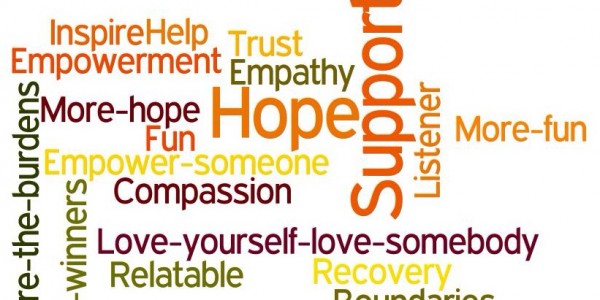Creating social connection from common experience
The diagnosis of bipolar disorder three years ago changed Tracy Windsor’s life in immeasurable ways.
Feeling disconnected from community and grieving the loss of meaningful employment, Tracy enrolled in Peer Support Worker Training in fall 2011. Today, she has reclaimed those parts of her life that she previously – and wrongly — believed mental illness had stolen away.
“Peer Support Worker Training filled in these gaps,” she said. “It allowed me to meet more of my peers who are passionate about helping others in recovering from mental illness.”
Through facilitating peer-led support groups and sharing her story of recovery, Tracy’s found a passion for working and spending time with peers who have also lived the experience of mental illness.
Tracy hopes to use her experience to reach her new goal of becoming a mental health social worker.
The value of connection
Tracy’s personal experience is borne out in new Vancouver MH&A research that found Peer Support Worker Training not only helps those clients travelling down the path of recovery, but also helps former clients who are delivering the support service to their peers.
This finding, and others, came from a lengthy survey of VCH Peer Support Workers conducted in 2013 by VCH Peer Support Program Coordinator Renea Mohammed and Peer Researcher Seema Shah. Research results were presented at the National Conference on Peer Support in Halifax in late April in a presentation entitled The Role of Peer Support Training in Recovery.
“We learned that Peer Support Workers believe the program makes a difference in their lives, helping them to move forward in their recovery and sometimes reframe past struggles as assets,” said Mohammed. Added Shah, “Almost 90 per cent of those we surveyed reported that the Peer Support Worker training added to their personal recovery journey.”
As for the peers receiving support, they benefitted from personalized one-to-one support from someone who is walking-the-walk of recovery. “This type of shared learning results in system practices that are better informed by the lived experience,” Mohammed said.
Peer Support Worker training in Vancouver
Vancouver Mental Health Services has been offering Peer Support Training since 1997. The first graduating class consisted of 10 Peer Support Workers who were placed at six mental health teams and units. The 2013-14 class year saw 76 applicants apply for 25 seats.
Today, as many as 50 Peer Support Workers are helping people at 17 sites across Vancouver, including hospitals and on Mental Health Teams.
Peer Support Worker training consists of 105 hours of classroom time and covers a range of topics. The classroom portion of the training is followed by a practicum that is 36 hours long.
For more information on either the study results, or how to enroll in the Peer Support Training program, contact Renea Mohammed directly, Renea.Mohammed@vch.ca.

